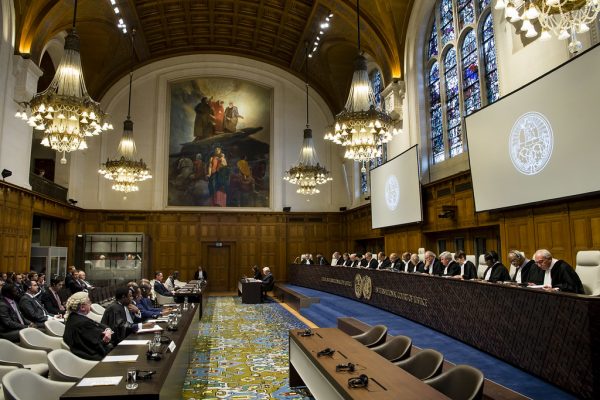Facebook Fights Fake News

Facebook and Twitter are typically utilized as platforms to share photos with friends or interact with peers online. But recently, the two major social media platforms have been criticized for not going far enough to handle the fake news and hate speech on their websites, which led to a misinformed public. In response, Germany’s Justice Minister Heiko Maas has presented a bill that would fine social media platforms that did not respond to illegal content on their websites.
With this bill, failure by social media sites such as Facebook and Twitter fail to curb hate speech or fake news could result in up to $53 million in fines. According to the New York Times, Heiko Maas announced his law and said, “We must increase the pressure on social networks. This will set binding standards for how companies running social networks must handle complaints and require them to delete criminal content.” He believes that the major social media platforms need to handle content that violates Germany’s authoritarian laws on hate speech.
If the proposed bill is passed, Facebook and Twitter would be forced to delete or block any reports of criminal content within twenty-four hours. According to the New York Times, Germany told Facebook and Twitter to delete at least seventy percent of the hate speech on their platforms within twenty-four hours of being reported, but the two platforms could not reach this goal. The study also noted that, within the twenty-four hour time frame, Facebook managed to delete 39 percent of hate speech while Twitter could only delete 1 percent.
But, after being threatened and being forced to delete posts on its platform, Facebook wants to define the boundary between the rights of free speech and the act of preventing hate speech. An article published by the Washington Post expanded on the topic of hate speech being protected under the first amendment and said that hateful ideas are the same as any other ideas. It also stated that, “there is no hate speech exception to the First Amendment.” Even though Facebook and Twitter have agreed to cooperate and delete illegal content, they claim there is “a fine line between complying with a country’s rules and outright censorship,” according to the New York Times. Facebook’s head of public policy in Europe, Richard Allen, told the New York Times, “We are doing far more than any other company to try and get on top of hate speech on our platform and we recognize that this is a work in progress.”
Along with Germany, the U.S. has also become victim to fake news especially around the election season. Accusations of Facebook misinforming the public about the candidates and influencing the electorate vote arose soon after Trump was elected President. A fake story that was posted on Facebook, “claiming Pope Francis — actually a refugee advocate — endorsed Mr. Trump was shared almost a million times, likely visible to tens of millions,” according to a professor at the University of North Carolina. As a result, many executives of the network questioned whether the platform had any influence on the election results.
In addition, the recent influx of refugees in Germany has made it difficult for companies like Facebook and Twitter to delete hate speeches and racist messages. The chief executive of the World Jewish Congress, Robert Singer, responded in an interview with the Washington Post saying, “The internet is awash with hateful content, a lot of which is incitement to hatred and violence. Currently, it often takes sites far too long to remove or block such content; it is important that the internet companies and politicians take this problem seriously, and we commend Germany for taking the lead on this.”
Along with hate speeches, fake news about residents of Germany have resided online. A picture taken of German Chancellor, Angela Merkel, and a nineteen-year-old Syrian refugee named Anas Modomani surfaced on Facebook in 2015. In early March, Modomani went to court in a case against Facebook because of fake news of him being a terrorist being spread throughout the platform. He wanted to prevent his picture with the Chancellor from being posted online and to have Facebook delete all the fake news that was posted in response to the image. According to CNN News, Modamani’s lawyer, Chon-jo Jun, said that users were allowed to proliferate even though Facebook took down many of the fake news stories on Modamani’s photo. However, the court ruling in Wuerzburg, Germany ruled against Modomani and said that Facebook was “neither perpetrator nor participant in the undisputed slander.” Judge Volkmar Seipel told Bloomberg after his ruling that, “Facebook didn’t adopt the statements and the postings as its own opinion, it’s not Facebook that’s claiming these things when users are uploading the picture.”
Along with the image of Modamani, other fake news stories have surfaced in Germany. The Bild, a popular newspaper in German published a story about Arab men sexually assaulting women and was soon proved as “completely baseless,” according to the local police. No assault was recorded and the motives of the fake allegations are nowhere to be found. Another incident occurred on a website popular in Germany, the Breitbart News, where an article was published accusing a group of Muslim men of setting a church on fire in Dortmund, which was soon proven to be a lie. German newspapers and media hope to put a stop to the recent outburst of fake news before the German people lose trust in their news sources.










